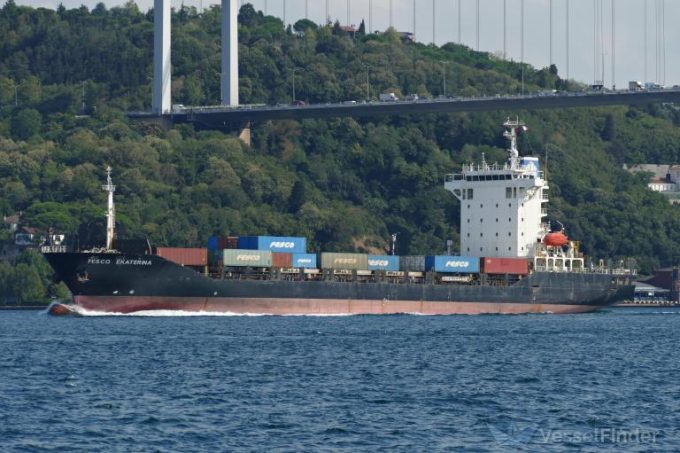$10bn Vadhavan – a game of political musical chairs
The will of the people…
GM: GAUGING RISKGXO: NEW BOT PARTNERWMT: CAPEX IN CHECKWMT: CFO ON AUTOMATION WMT: SPOTLIGHT ON AUTOMATIONHD: PRESSURE BUILDSFWRD: REVISED EBITDA MAERSK: TESTING ONE-MONTH HIGHFDX: UP UP AND AWAYRXO: COYOTE DEAL TAILWINDDSV: NEW REFI DEALR: WEAKENING AMZN: LIFESTYLE BATTLEKNIN: EXPANDED NETWORK OF CROSS-DECK FACILITIES
GM: GAUGING RISKGXO: NEW BOT PARTNERWMT: CAPEX IN CHECKWMT: CFO ON AUTOMATION WMT: SPOTLIGHT ON AUTOMATIONHD: PRESSURE BUILDSFWRD: REVISED EBITDA MAERSK: TESTING ONE-MONTH HIGHFDX: UP UP AND AWAYRXO: COYOTE DEAL TAILWINDDSV: NEW REFI DEALR: WEAKENING AMZN: LIFESTYLE BATTLEKNIN: EXPANDED NETWORK OF CROSS-DECK FACILITIES

Fesco (Far Eastern Shipping Co), Russia’s largest ocean container carrier, is cementing its connectivity out of India, as cargo volumes see steady traction.
The liner has deployed a larger vessel on the West India-Novorossiysk route, increasing overall capacity by about 25%.
The enhanced service, known as FIL-W (Fesco Indian Line West), kicked off with the 1,080-teu Fesco Askold departing Nhava Sheva on 18 June for Mundra. Sister ship Fesco Ekaterina, 1,049 teu operates on a rotation of Novorossiysk-Nhava Sheva-Mundra-Novorossiysk.
The connection, which began in February last year, now offers a fortnightly frequency, with an average transit time of 16 days from India to Russia.
To maximise capacity utilisation, Fesco is using Mundra as a hub to consolidate or aggregate cargo from other locations in the region and for transhipment.
“FIL-W is connected by feeder lines to other Indian ports like Kolkata, Tuticorin and Chennai, as well as to Jebel Ali (UAE), Chattogram (Bangladesh), Karachi (Pakistan) and Colombo (Sri Lanka),” said the Russian carrier.
Buoyed by growing demand on the tradelane, niche Indian NVOs have also been deploying tonnage, mostly on an inducement basis. Mumbai-based Econship is one such, which has had a raft of sailings for India-Russia trade.
According to available provisional data, two-way trade between India and Russia, by value, soared 33%, to some $66bn, in fiscal year 2023-24, which ended in March, a significant boost in the context of international payment problems being outside the Swift network.
As the industry focus around alternative routings builds amid unpredictable geopolitical events, Chabahar Port in Iran has become another focal point for India’s trade with landlocked Central Asia. Chabahar is the only deepsea port in Iran, located beyond the Strait of Hormuz.
New Delhi recently inked a long-term concession deal for the modernisation and operation of container berths at the port. Collaboration had proved challenging for both sides in the wake of US sanctions restricting bilateral trade ties with Tehran.
India believes Chabahar’s strategic location has significant advantages, which include minimal exposure to potential supply chain disruptions, also given its ongoing integration with the International North-South Transport Corridor (INSTC).
In recent years, India has been more actively developing and using INSTC to continue its trade with Russia, following the sanctions linked to Russia’s invasion of Ukraine.
India, through special purpose vehicle India Port Global, between Nhava Sheva and Kandla ports, pledged to invest some $120m for the modernisation of Chabahar, besides agreeing to extend a credit line of $250m for other related infrastructure development.
You can contact the writer at [email protected]
Comment on this article